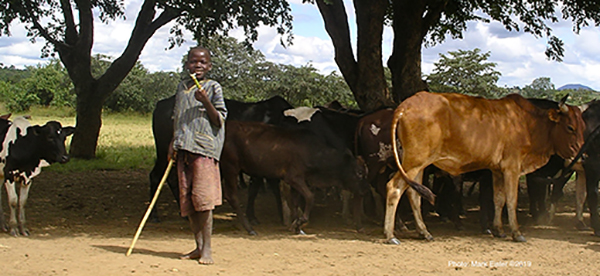Global Food Security

Over the next few decades, there will be increasing pressure on agricultural land to meet the global demand for food in a secure and sustainable way. Climate change, rapidly increasing human population, urbanisation, demand for biofuels and a growing demand for animal protein in developing nations will exacerbate this pressure. Farm animals can play a sustainable role in meeting our requirements for food in the broader context of mixed agricultural systems. Livestock can consume crop residues humans cannot eat and use land which cannot produce human-edible crops, and are an important source of protein for the world’s poor people. However, this must be balanced against the health and welfare of managed animals, their greenhouse gas emission (currently up to 18% of global emissions), and their impact on biodiversity and ecosystem services.
The Global Food Security theme within Bristol Veterinary School combines the research expertise of Animal Wefare and Behaviour; Infection, Inflammation and Immunotherapy; Antimicrobial Resistance. The theme links directly to the University’s Cabot Institute for research on environmental change and to the North Wyke Farm Platform of the Rothamsted Research Institute. Our research addresses major challenges to sustainable intensification of livestock production, including epidemiology, infectious disease, nutrition and management, ‘One Health’, parasitology, veterinary public health, animal behaviour and animal welfare. Research outputs inform policy makers, farmers and other stakeholders of the threats, barriers and potential solutions for ensuring that livestock make an essential contribution to global food security.
